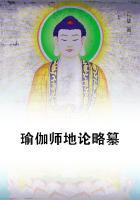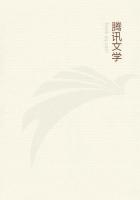Much has been written about the chronology of Alexandrian literature and the famous Library, founded by Ptolemy Soter, but the dates of the chief writers are still matters of conjecture.The birth of Apollonius Rhodius is placed by scholars at various times between 296 and 260 B.C., while the year of his death is equally uncertain.In fact, we have very little information on the subject.There are two "lives" of Apollonius in the Scholia, both derived from an earlier one which is lost.From these we learn that he was of Alexandria by birth, (1) that he lived in the time of the Ptolemies, and was a pupil of Callimachus; that while still a youth he composed and recited in public his "Argonautica", and that the poem was condemned, in consequence of which he retired to Rhodes; that there he revised his poem, recited it with great applause, and hence called himself a Rhodian.The second "life" adds: "Some say that he returned to Alexandria and again recited his poem with the utmost success, so that he was honoured with the libraries of the Museum and was buried with Callimachus." The last sentence may be interpreted by the notice of Suidas, who informs us that Apollonius was a contemporary of Eratosthenes, Euphorion and Timarchus, in the time of Ptolemy Euergetes, and that he succeeded Eratosthenes in the headship of the Alexandrian Library.Suidas also informs us elsewhere that Aristophanes at the age of sixty-two succeeded Apollonius in this office.Many modern scholars deny the "bibliothecariate" of Apollonius for chronological reasons, and there is considerable difficulty about it.The date of Callimachus' "Hymn to Apollo", which closes with some lines (105-113) that are admittedly an allusion to Apollonius, may be put with much probability at 248 or 247B.C.Apollonius must at that date have been at least twenty years old.Eratosthenes died 196-193 B.C.This would make Apollonius seventy- two to seventy-five when he succeeded Eratosthenes.This is not impossible, it is true, but it is difficult.But the difficulty is taken away if we assume with Ritschl that Eratosthenes resigned his office some years before his death, which allows us to put the birth of Apollonius at about 280, and would solve other difficulties.For instance, if the Librarianswere buried within the precincts, it would account for the burial of Apollonius next to Callimachus--Eratosthenes being still alive.However that may be, it is rather arbitrary to take away the "bibliothecariate" of Apollonius, which is clearly asserted by Suidas, on account of chronological calculations which are themselves uncertain.Moreover, it is more probable that the words following "some say" in the second "life" are a remnant of the original life than a conjectural addition, because the first "life" is evidently incomplete, nothing being said about the end of Apollonius' career.
同类推荐
热门推荐
tfboys情根深种
我知道我文笔渣渣,我知道我写的不好,但还是欢迎四叶草们来捧场哦!虽然我是一名四叶草,但我并不讨厌行星饭,希望大家和睦相处!希望大家看下去,虽然写的不好,也没有时间更文,请耐心等待。四叶草在未来唯美盛开!支持三小只吧!老王走了,留下一堆苦难
当我们还没有翻开自己生命的帘子,血液就注定了我们生命的全部,将全部交给罪恶,那一年那一月那一日那一时那一分那一秒。我们都渴望着,世界就在足下。而面对后天的后天,经岁月浇筑成的版图,才是痕迹的回音。一代人,活在梦里,不知时日如何飞走。一代人,活在昨天,不知是谁告诉他们可以离开自己的肉体。一代人,活在今天,不知过去留给了历史无数的遗憾。一代人,活在明天,不知期望其实就是捉弄自己的双手。琴瑟天涯
她一朝穿越,沦为乞丐,为了自食其力,女扮男装,投身军营,她千里单骑,万里救夫,失了初恋,没了丈夫,她亲手打造了他,却为她人做了嫁衣,她此生最爱那个手生妙音的男子,然而伤她最深之人亦是她所伤最深之人;他是天下最美的男子,是美的代名词,然而正因为过于完美,所以没有任何情感,感观钝化,一把凤鸣琴独步天下,赵国公主为了嫁他许诺相送城池十座,晋国第一剑士长公主在阵前丢盔弃甲,只愿做一婢女,只要能相伴他的左右;他三代白衣,一路跟随,从马夫到将军,无限风光,但是若命运能够重来,他宁愿只做个逍遥的乞丐;他就像只养在金笼里的金丝雀,她给他带来了前所未有的阳光和明媚,他愿为了她散尽后宫三千,然而她并不属于他















